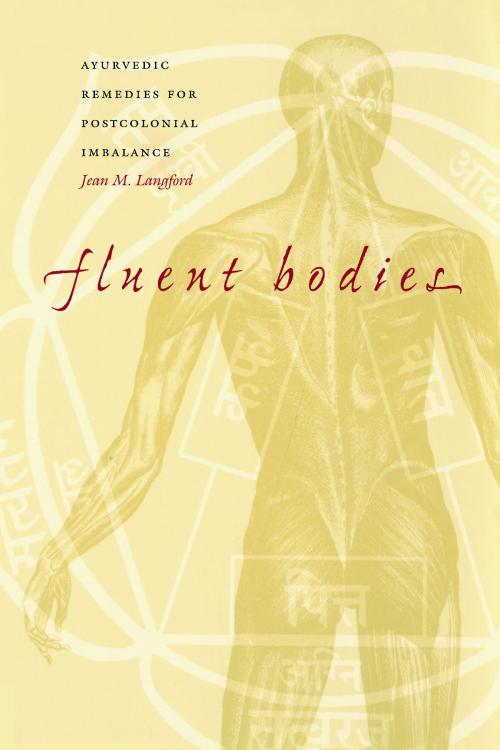Fluent Bodies
Ayurvedic Remedies for Postcolonial Imbalance
Nonfiction, History, Asian, India, World History, Social & Cultural Studies, Social Science, Anthropology| Author: | Jean M. Langford | ISBN: | 9780822384113 |
| Publisher: | Duke University Press | Publication: | October 2, 2002 |
| Imprint: | Duke University Press Books | Language: | English |
| Author: | Jean M. Langford |
| ISBN: | 9780822384113 |
| Publisher: | Duke University Press |
| Publication: | October 2, 2002 |
| Imprint: | Duke University Press Books |
| Language: | English |
Fluent Bodies examines the modernization of the indigenous healing practice, Ayurveda, in India. Combining contemporary ethnography with a study of key historical moments as glimpsed through early-twentieth-century texts, Jean M. Langford argues that as Ayurveda evolved from an eclectic set of healing practices into a sign of Indian national culture, it was reimagined as a healing force not simply for bodily disorders but for colonial and postcolonial ills.
Interweaving theory with narrative, Langford explores the strategies of contemporary practitioners who reconfigure Ayurvedic knowledge through institutions and technologies such as hospitals, anatomy labs, clinical trials, and sonograms. She shows how practitioners appropriate, transform, or circumvent the knowledge practices implicit in these institutions and technologies, destabilizing such categories as medicine, culture, science, symptom, and self, even as they deploy them in clinical practice. Ultimately, this study points to the future of Ayurveda in a transnational era as a remedy not only for the wounds of colonialism but also for an imagined cultural emptiness at the heart of global modernity.
Fluent Bodies examines the modernization of the indigenous healing practice, Ayurveda, in India. Combining contemporary ethnography with a study of key historical moments as glimpsed through early-twentieth-century texts, Jean M. Langford argues that as Ayurveda evolved from an eclectic set of healing practices into a sign of Indian national culture, it was reimagined as a healing force not simply for bodily disorders but for colonial and postcolonial ills.
Interweaving theory with narrative, Langford explores the strategies of contemporary practitioners who reconfigure Ayurvedic knowledge through institutions and technologies such as hospitals, anatomy labs, clinical trials, and sonograms. She shows how practitioners appropriate, transform, or circumvent the knowledge practices implicit in these institutions and technologies, destabilizing such categories as medicine, culture, science, symptom, and self, even as they deploy them in clinical practice. Ultimately, this study points to the future of Ayurveda in a transnational era as a remedy not only for the wounds of colonialism but also for an imagined cultural emptiness at the heart of global modernity.















